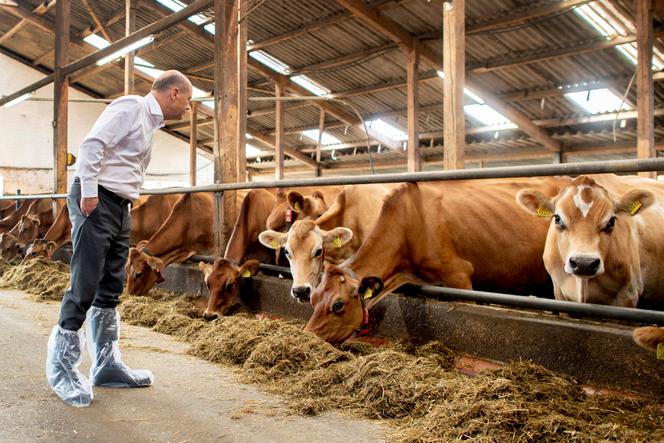


The sentence appears on page 48 of the coalition agreement signed in November 2021 by the German Social Democrats (SPD), Greens and FDP liberals: "We will take glyphosate off the market by the end of 2023." Two years on, then, it's no surprise that Berlin is at odds with the European Commission's proposal, made public on Wednesday, September 20, to re-approve the use of this controversial herbicide in the European Union (EU) for another 10 years.
"As long as it cannot be ruled out that glyphosate harms biodiversity, its approval in the EU should be phased out. A diverse and intact plant and animal world is the prerequisite for safe harvests today and in 10, 20 or 50 years time," said German Agriculture Minister Cem Özdemir (Greens). "We do not decide on our own whether glyphosate will be taken off the market. This is why we are in intensive talks on this with our partners in the EU," he added.
Germany should, therefore, logically vote against the Commission's proposal on October 13, the date on which the EU-27 member states are due to vote on it. However, it is not out of the question that Germany might just abstain. Indeed, despite what is written in the coalition agreement, the government of Olaf Scholz (SPD) remains divided on the issue of glyphosate. The liberals, for example, have made no secret of the fact that they remain in favor of glyphosate use and consider the decision to ban it as "intellectual cowardice," in the words of Carina Konrad, vice chairwoman of the FDP group in the Bundestag.
Resolutely opposed to glyphosate, the Greens would obviously prefer Germany to vote against it in Brussels on October 13. However, "if one of the majority partners does not feel bound by what is written in the coalition agreement, namely that glyphosate must be taken off the market in 2024, we may be forced to abstain," Green MP Karl Bär told Le Monde. "This wouldn't be the best thing to do, but it wouldn't be so bad either, because abstaining wouldn't mean approving the Commission's proposal," he added.
Anticipating the European Commission's proposal, a group of organizations, including Slow Food and Greenpeace, went to the Ministry of Agriculture in Berlin on September 14 to hand in a petition with 136,125 signatures, calling on the government to keep its promises and oppose any further extension of glyphosate use in the EU. According to a survey conducted in August by the Ipsos institute in six European countries, 68% of Germans are in favor of a ban on glyphosate in Europe, virtually the same proportion as the French (70%) and ahead of the Romanians (63%), Poles (59%), Spaniards (57%) and Danes (52%).
You have 29.74% of this article left to read. The rest is for subscribers only.
